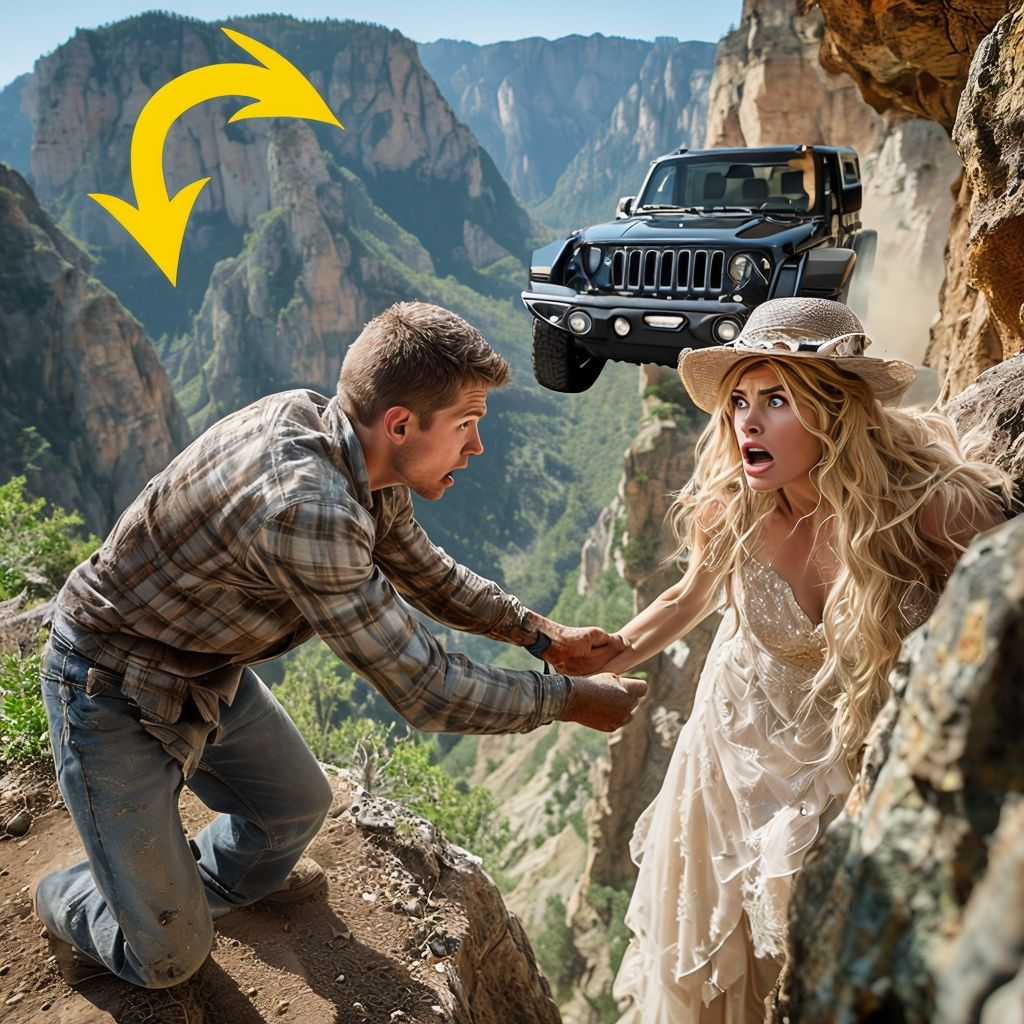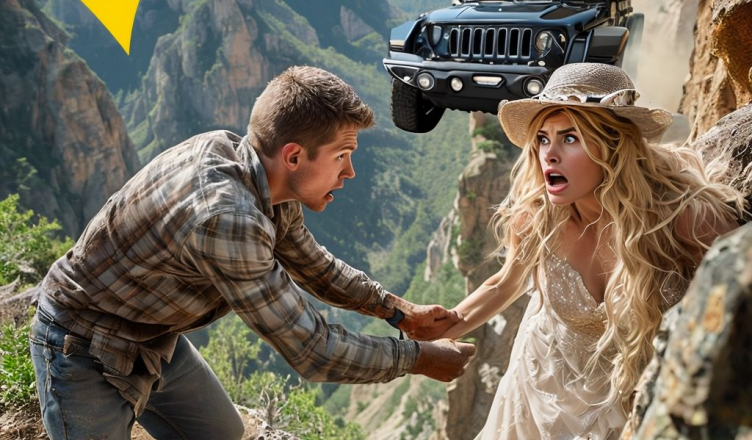Ethan Walker had spent nearly every day of his 27 years in the same rolling hills of western Montana. He was a third-generation cattle farmer, lean and sunburned, with strong hands and a quiet manner. He didn’t care for city life, luxury brands, or flashy cars. The only vehicle he needed was his rusted blue pickup, and the only suit he owned was the one he wore to church.
But on a crisp spring morning, everything he thought he knew about his world — and about people — changed in a way he could never have imagined.
Ethan was checking the western fence line near the ridge above Clearwater Gorge. It was the kind of place tourists occasionally hiked, unaware how treacherous the cliff edges were, especially after recent rains. He knew the terrain like the back of his hand.
He was about to turn his truck around when he heard something strange — not a coyote, not the wind — but a cry. A human voice. Faint, frantic, and terrified.
He killed the engine and ran.
Following the sound, he reached the cliff’s edge and looked down.
There, clinging with both arms to a small tree rooted just inches from the sheer drop, was a woman in a torn white dress. Her expensive-looking shoes were gone. Her feet were cut and muddy. Her makeup was streaked with tears. But the most shocking part — she was still wearing a wedding veil.
She looked up, eyes wild with fear.
“Help me,” she sobbed.

Ethan didn’t hesitate. He grabbed a coil of rope from the truck and tied it around a nearby pine. Lying flat, anchoring himself, he extended the rest down toward her.
It took ten agonizing minutes of calm instructions, coaxing, and brute strength to get her up. She collapsed into his arms, trembling, but unhurt.
Back in the truck, wrapped in a wool blanket, she finally spoke.
Her name was Madeline Crossley, and she was — or had been — about to marry Vincent Remar, one of the wealthiest venture capitalists in the country. Their wedding was a multimillion-dollar affair at a remote mountain resort just ten miles away.
But when the time came to say “I do,” she panicked. Not because of cold feet, but because she had finally accepted the truth: she was being bought, not loved. Vincent had insisted on a prenuptial agreement that stripped her of autonomy, forbade her from working, and essentially turned her into a trophy. She had ignored the signs for months, pressured by her socialite family and media spectacle.
So instead of walking down the aisle, she ran. She took a back trail behind the resort, intending to disappear. But the path crumbled beneath her on the cliff, and she’d been clinging there for over an hour before Ethan arrived.
Ethan, stunned but composed, said very little.
He offered her a phone to call someone. She refused. She didn’t want to go back. She asked if there was a quiet place she could rest.
He drove her to his farmhouse — a modest wooden home surrounded by wheat fields and hills. She stayed in the guest room that night, too exhausted to plan her next move. In the morning, she insisted on helping feed the chickens. By afternoon, she was sweeping the porch and watching cows from the fence.
She stayed three days.
Then a week.
Then three weeks.
At first, Ethan expected the news crews. He waited for helicopters, police cars, or at least a scandalous headline. None came. Madeline had turned off her phone and disappeared from her former life by choice.
She wasn’t fragile or helpless. She began asking questions about the land. She learned how to fix a wire fence. She helped plant spring vegetables. She even learned to ride a horse.
They never spoke much about her past. And Ethan never asked.
But something grew between them. Not fast, not dramatic — but steady, honest, real. He showed her how to change spark plugs. She taught him how to make crème brûlée from scratch. They laughed often. Sometimes they didn’t need to speak at all.
Three months later, she received a letter — hand-delivered — from a private investigator. Inside was a note from Vincent, surprisingly restrained.
It read: “I hope you’re safe. I release you. No lawyers. No pursuit. Be free. — V.”
She burned the letter that night in the firepit behind the barn.
By summer’s end, she’d filed for a legal name change. Not to hide — but to begin again.
Madeline didn’t become a farmer’s wife overnight. She didn’t sell her jewelry or trade silk for denim. But she did plant a row of sunflowers outside Ethan’s window. And one August evening, she took his hand and said:
“You didn’t just save my life that day. You gave it back to me.”
They married the following spring, quietly, under the same tree that once held her above the abyss. No photographers. No diamonds. Just two people, and a world that finally made sense.
